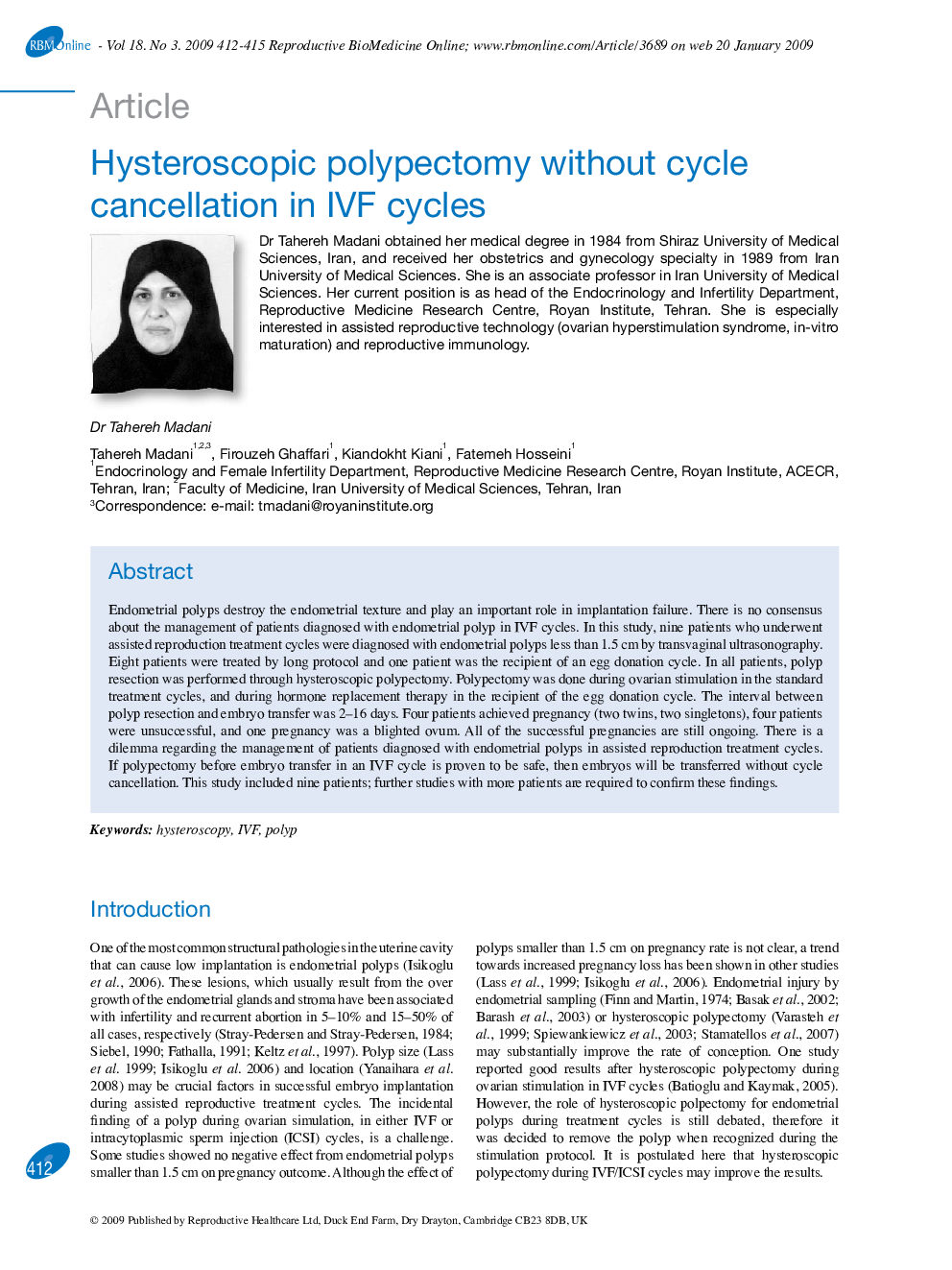| Article ID | Journal | Published Year | Pages | File Type |
|---|---|---|---|---|
| 3972028 | Reproductive BioMedicine Online | 2009 | 4 Pages |
Endometrial polyps destroy the endometrial texture and play an important role in implantation failure. There is no consensus about the management of patients diagnosed with endometrial polyp in IVF cycles. In this study, nine patients who underwent assisted reproduction treatment cycles were diagnosed with endometrial polyps less than 1.5 cm by transvaginal ultrasonography. Eight patients were treated by long protocol and one patient was the recipient of an egg donation cycle. In all patients, polyp resection was performed through hysteroscopic polypectomy. Polypectomy was done during ovarian stimulation in the standard treatment cycles, and during hormone replacement therapy in the recipient of the egg donation cycle. The interval between polyp resection and embryo transfer was 2–16 days. Four patients achieved pregnancy (two twins, two singletons), four patients were unsuccessful, and one pregnancy was a blighted ovum. All of the successful pregnancies are still ongoing. There is a dilemma regarding the management of patients diagnosed with endometrial polyps in assisted reproduction treatment cycles. If polypectomy before embryo transfer in an IVF cycle is proven to be safe, then embryos will be transferred without cycle cancellation. This study included nine patients; further studies with more patients are required to confirm these findings.
